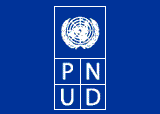Reuters
UPDATE 1-Venezuelan bonds thrive amid crisis
Thu November 21, 2002 09:59 PM ET
(Adds latest developments from Venezuela and Thursday's closing market
levels paras 5-6)
By Hugh Bronstein
NEW YORK, Nov 21 (Reuters) - Venezuelan sovereign bonds, which have
soared though this year's anti-government protests and a failed April
coup, will probably end 2002 as the best performing fixed income play
in Latin America, analysts and investors said.
Even as the presidency of leftist Hugo Chavez has been reduced to a
full-time battle to stay in power, many holders of Venezuelan debt say
they are looking at a 'win-win' scenario.
If Chavez is forced out, they predict an even more dramatic rally for
Venezuela's bonds. If he hangs on, investors say he is unlikely to
open a new front of confrontation by defaulting.
While the political drama plays out, Venezuela, the world's fifth-largest
petroleum producer, is expected to keep collecting healthy oil
revenues, the effect of which has been enhanced by this year's
depreciation of the nation's currency.
Latin American sovereign bonds have returned 3.2 percent so far this
year while Venezuela total returns are up by an eye-popping 22.77
percent, according to JP Morgan's Emerging Markets Bond Index Plus.
The numbers may come as a surprise to those who read the daily
headlines from Caracas, where labor and business leaders on Thursday
announced a nationwide general strike for Dec 2 aimed at pressing
Chavez to hold an early referendum on his rule. But from Wall Street's
vantage point, anything that's bad for Chavez is seen as good.
"There's not a lot of unity in the opposition but whoever emerges as
the leader would have to be a nightmare to be worse than Hugo Chavez,
from the market's perspective," said Jim Barrineau, a vice president
in emerging markets research at Alliance Capital Management, which
holds Venezuelan debt.
It is not clear who would rise to the office if Chavez were to be
voted or evicted from office.
"People think Chavez will be put out of office one way or the other
and whoever comes into office is likely to be more reasonable and
carry out better policies," said George Estes, sovereign credit
analyst with Grantham, Mayo, Van Otterloo & Co., a firm managing $1.25
billion in emerging market debt including some Venezuelan paper.
"That coupled with Venezuela's relatively low external debt levels
explains the performance of the bonds," Estes said.
Chavez was elected in 1998 on promises to end corruption and help the
poor. But the country remains as impoverished as ever while his
opponents accuse him of trying to establish Cuban-style communism, a
charge he dismisses.
"If they get a leader who opens up Venezuela, moves to a less oil-dependent
economy and says he wants a free trade agreement with the United
States, Venezuelan bonds would skyrocket," Barrineau said.
The country's DCB bonds VENDCB=RR closed at a bid of 82-1/4 on
Thursday.
"You would get five more points on the bonds if you are sure that
Chavez is going to leave and this time stay gone for a while,"
Barrineau added, referring to the April coup in which Chavez was
removed from office for a weekend before his supporters and loyal
troops rallied and reinstated him.
CHAVEZ IS PRESIDENT, OIL IS KING
Venezuela received a windfall this year as the threat of war between
the United States and Iraq jacked up the price of oil, strengthening
the government's financial position. But the country's economy
contracted sharply in the first half of the year, dragged down by a
slump in oil production.
In February, the government floated its currency, the bolivar, which
also helped. Venezuela still receives its oil revenue in sturdy
dollars while making expenditures in weakening bolivars. The total
effect gives Venezuela more money to make bond service payments.
"Chavez will probably continue to pay the debt because at this point
he does not want to pick a fight with the international community by
defaulting," said Jose Luis Daza, global head of emerging markets
strategy at Deutsche Bank.
"What I don't know is what comes after Chavez," he added. "My fear is
that Venezuela could fall into chaos."
Deutsche Bank, along with some other investment banks such as Salomon
Smith Barney, recommends investors take overweight positions in
Venezuelan external bonds for the time being.
Compared to the rest of the sovereign debt market for emerging
economies, Venezuelan bonds trade at a higher spread, meaning they are
relatively risky as compared to safe-haven U.S. Treasury bonds. Hence,
Venezuelan paper rewards investors with relatively high yields.
So those who hold Venezuelan sovereigns expect to keep making money
despite the downdraft created in the market by economic policy
uncertainty in Brazil, the biggest economy in Latin America where the
left-leaning incoming president has yet to name his cabinet or
concretely outline his plans.
http://www.reuters.com/newsArticle.jhtml?type=topNews&storyID=1786497


